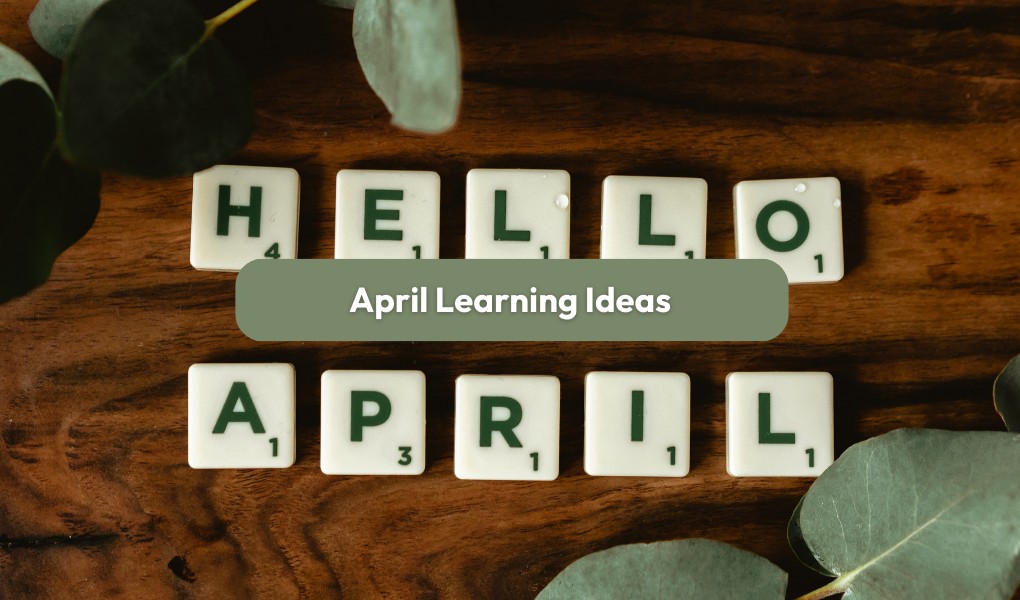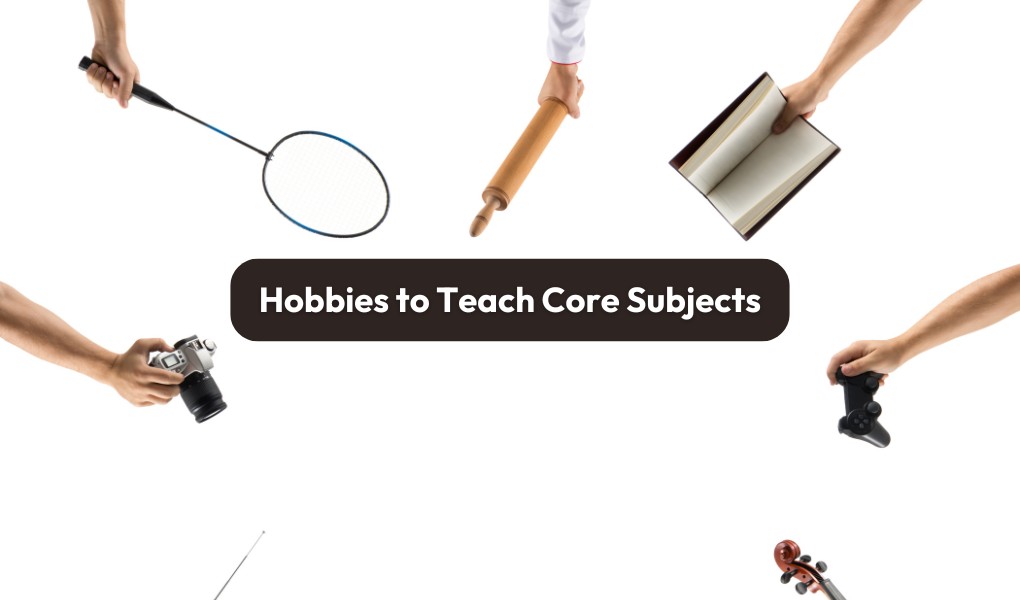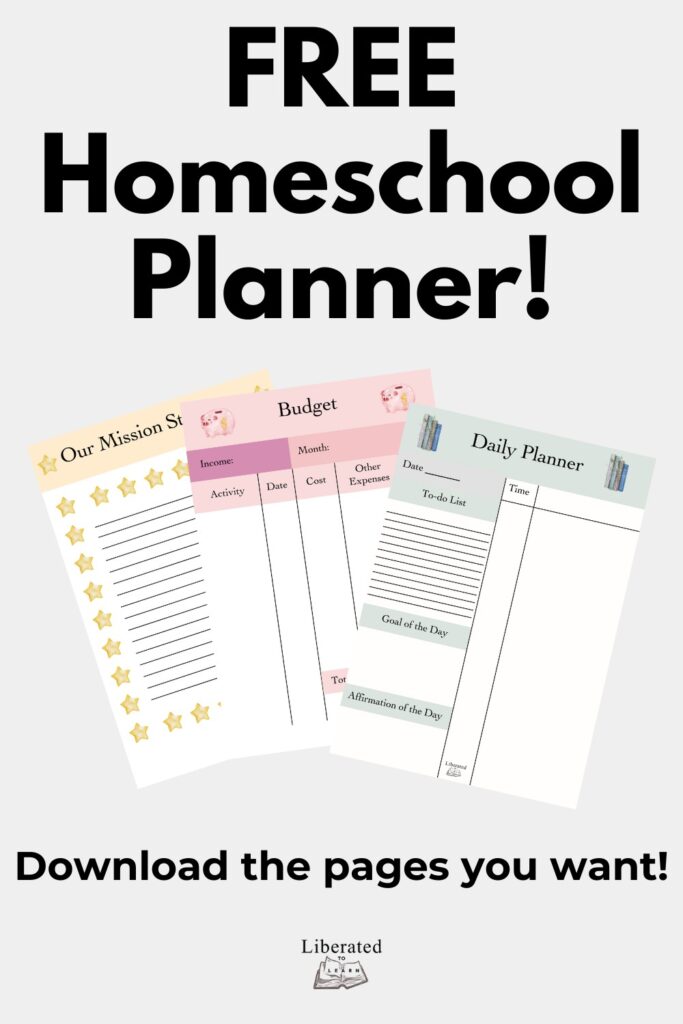Whether you want to celebrate Earth Day or dive into some Easter-related activities, we’re sharing some April homeschool learning ideas, and have even included a learning ideas checklist!

Contents
April is a month of renewal, growth, and exploration! It’s when spring is in full bloom, and there are so many hands-on ways to bring learning to life. Whether you want to celebrate Earth Day or dive into some Easter-related activities, we’re sharing some April homeschool learning ideas, and have even included a learning ideas checklist!
And check out our other monthly learning ideas, too:
January Homeschool Learning Ideas
February Homeschool Learning Ideas
March Homeschool Learning Ideas

April Homeschool Themes
Here are some April homeschool themes that you’ll likely want to explore:
- Easter
- Earth Day
- Nature and gardening
April Homeschool Learning Ideas (By Subject)
Creative ideas:
- Write an Easter-inspired story.
- Read books about Easter traditions in different countries.
- Have a poetry picnic.
- Write a poem or short story inspired by nature.
- Read “The Tale of Peter Rabbit” and other stories by Beatrix Potter.
- Make a time-lapse video of a flower blooming.
- Create an Earth Day mandala.
- Collect recyclable materials and create a craft or project from them.
- Make homemade paper.
- Reillustrate a book about animals.
- Paint a nature-inspired piece.
- Sketch plants, track blooming flowers, and identify local wildlife in a nature journal.
- Create nature art.
- Listen to music that reflects the sounds of spring.
- Create an Easter-themed sensory bin.
- Make a rainstick.
- Make butterfly wings.
- Blow paint cherry blossoms.
- Create eggshell mosaic art.
- Make pressed flower suncatchers.
- Make a DIY wind spinner.
- Create a xylophone out of recycled materials.
- Perform a musical rain dance.
- Do some shadow art.
- Make a DIY bird nest.
- Create handprint tree art.
- Make a wishing tree.
- Build a DIY fairy or gnome house.
Science ideas:
- Learn about the water cycle.
- Investigate insects and create a bug hotel.
- Learn about pollination.
- Explore osmosis and dissolve egg shells in vinegar.
- Track and record the weather in April and compare it to previous months.
- Set up a small compost bin and observe how organic matter breaks down.
- Build a model ship out of aluminium or other materials and test its buoyancy.
- Use water, oil, and cotton balls to demonstrate the challenges of cleaning up ocean spills.
- Do a frog life cycle study.
- Do a butterfly life cycle study.
- Learn about static electricity using balloons.
- Learn about meteor showers and when there will next be one.
- Track the phases of the moon.
- Learn about space junk.
- Learn about condensation by making a “cloud” with warm water, ice, and hairspray.
- Do an egg drop challenge and test which materials will protect it.
- Build a 3D egg tower.
- Learn about dandelions and seed dispersal.
Maths ideas:
- Put maths problems inside plastic eggs and solve them as they’re found.
- Measure the growth of plants in your garden.
- Estimate the age of a tree.
- Track and record daily rainfall, then make a bar graph of your results.
- Track the usage of electricity and water for a week and think about ways to conserve energy.
- After heavy rainfall, estimate and measure the size of puddles.
- Do some carbon footprint calculations.
- Use chocolate and candy to come up with different maths problems and equations.
- Find geometric shapes in nature.
- Create a pretend budget and buy seeds, tools, and soil for a garden project.
- Design symmetrical patterns on paper eggs and learn about lines of symmetry.
- Plan a pretend garden by dividing a circle into fractions for planting different vegetables.
- Track how many recyclable items your family collects over a week and graph the results.
- Do a jump rope counting challenge.
- Create a bingo game with maths problems.
- Track daylight hours throughout the month and calculate how much longer days are getting.
Geography & History ideas:
- Learn about the origins of Easter and how it’s celebrated.
- Learn about the Titanic, read survivor stories, and create a timeline of the events.
- Discuss the causes and impact of World War I.
- Research the history of Arbor Day and plant a tree!
- Research and celebrate spring festivals from around the world.
- Research the first Earth Day in 1970.
- Learn about April-born inventors or historical figures.
- Create a time capsule with things that currently represent your life.
- Learn about the American Revolution.
- International Jazz Day: Learn about famous jazz musicians.
- Do a virtual tour of a museum.
- Explore different springtime biomes.
- Compare spring weather patterns across different regions or countries.
- Make a 3D landform model.
- Pick a world national park, learn about its geography, and create a travel brochure.
- Identify and colour different ecosystems on a world map.
- Learn about the impact of deforestation and look at satellite images to see how it changes landscapes over time.
- Identify which countries use the most solar, wind, or hydroelectric energy.
- Track ocean currents.
- Track the migration paths of birds, whales, or butterflies and create a migration map.
- Create a map of your neighbourhood.
- Compare what time it is in different parts of the world and discuss how seasons change across hemispheres.
- Design an eco-friendly city.
Life skill ideas:
- Create different recipes using fresh spring vegetables.
- Have a spring clean and do some organising.
- Track your family’s waste for a week and brainstorm ways to reduce it.
- Visit a farmers’ market and learn about nutrition.
- Camp at home and learn some basic survival skills.
- Learn how to use a compass and navigate around a park.
- Learn the basics of gardening.
- Start a lemonade stand or a spring-inspired business idea.
- Do some meal prepping.
- Volunteer for Earth day or do a recycle challenge.
Outdoor & physical activity ideas:
- Have an Easter egg hunt.
- Start a pollinator garden.
- Identify different trees, plants and flowers on a nature walk.
- Listen to different bird calls and identify them.
- Take pictures of seasonal changes.
- Create and complete an Easter obstacle course.
- Create a recycled obstacle course.
- Do an egg and spoon race.
- Plant a tree.
- Create a backyard musical parade.

Download the April Homeschool Ideas Checklist!
Tips for Homeschooling in April
Make the most of the warmer weather
The warmer weather gives you the perfect excuse to take learning outside and engage your children with more hands-on activities. Make the most of planning outdoor trips and getting more active with hiking or biking.
Incorporate seasonal themes into your learning
April is a month of seasonal changes and fun celebrations like Easter and Earth Day, so be sure to incorporate them by doing fun, relevant activities.
Evaluate what’s been working
With it being four months into the year, it’s a good time to evaluate what’s been working so far and what hasn’t. Does your homeschool routine need adjusting? Are your children enjoying homeschooling?
Take a moment to reflect with everyone about homeschooling so far and discuss what needs to change. You could always consider simplifying or shifting focus if needed—sometimes less is more!
Try something new
To make homeschooling in April more exciting, try something completely new! This could be exploring a new hobby or skill, trying out a new learning method, or completely changing up your schedule.
Have fun and be flexible
As always, the most important thing about homeschooling is to have fun and embrace flexibility.
- Enjoy the season! If the weather is nice, don’t stress about sticking to a rigid schedule—go outside and make memories.
- Allow for spontaneous learning moments—sometimes the best lessons come from everyday experiences.
- Plan themed days to keep things exciting.
- Remember that learning happens in many ways—play, exploration, and creativity are just as valuable as textbooks.

m@liberated
Want more from Liberated to Learn?
Subscribe to stay updated about new posts, resources and giveaways!












